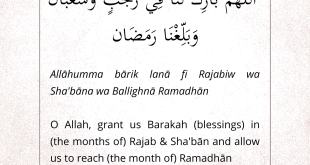 1. It is waajib (compulsory) for one to remain silent while the khutbah is being delivered e.g. Jumuah, nikah, Eid etc. If one speaks during the khutbah, one will be sinful. [1]
1. It is waajib (compulsory) for one to remain silent while the khutbah is being delivered e.g. Jumuah, nikah, Eid etc. If one speaks during the khutbah, one will be sinful. [1]
عن ابن عباس قال : قال رسول الله صلى الله عليه و سلم : من تكلم يوم الجمعة والإمام يخطب فهو كمثل الحمار يحمل أسفارا والذي يقول له : أنصت ليس له جمعة رواه أحمد والبزار والطبراني في الكبير وفيه مجالد بن سعيد وقد ضعفه الناس ووثقه النسائي في رواية (مجمع الزوائد رقم 3123)
Hadhrat ibn Abbaas (Radhiallahu Anhuma) reports that Rasulullah (Sallallahu Alaihi Wasallam) said: “The example of the one who speaks on the day of Jum’uah while the Imaam delivers the khutbah is like that of a donkey which carries a load of books on its back (i.e. just as a donkey carrying a load of Deeni books on its back does not benefit from the Deeni books, similarly the one who speaks while the khutbah is in progress will not receive any benefit). And the one who asks another to remain silent (while the khutbah is being delivered), there is no Jumuah for him. (i.e. even though he is advising another to remain silent during the khutbah, he himself has committed a sin due to speaking while the khutbah is in progress.)
[1] ( وكل ما حرم في الصلاة حرم فيها ) أي في الخطبة خلاصة وغيرها
فيحرم أكل وشرب وكلام ولو تسبيحا أو رد سلام أو أمر بمعروف بل يجب عليه أن يستمع ويسكت ( بلا فرق بين قريب وبعيد ) في الأصح محيط
ولا يرد تحذير من خيف هلاكه لأنه يجب لحق آدمي وهو محتاج إليه والإنصات لحق الله تعالى ومبناه على المسامحة وكان أبو يوسف ينظر في كتابه ويصححه والأصح أنه لا بأس بأن يشير برأسه أو يده عند رؤية منكر والصواب أنه يصلي على النبي صلى الله عليه وسلم عند سماع اسمه في نفسه ولا يجب تشميت ولا رد سلام به يفتى (الدر المختار 2/159)
 Wifāq ul Ulāma (SA) ASSOCIATION OF SOUTH AFRICAN 'ULAMA
Wifāq ul Ulāma (SA) ASSOCIATION OF SOUTH AFRICAN 'ULAMA
